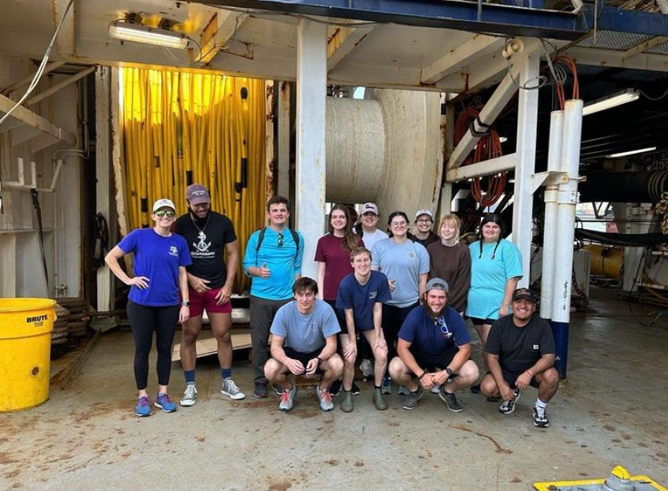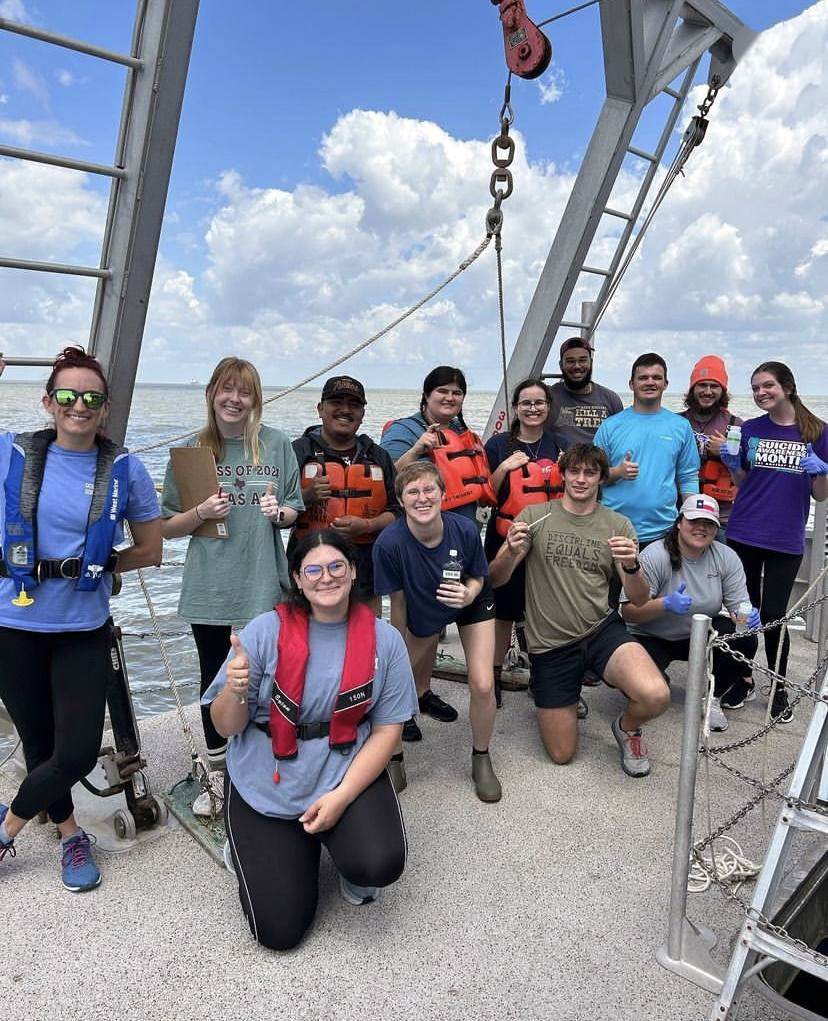
If your ambition is to be an oceanographer, it’s helpful to get a first-hand look at what the profession entails when it comes to fieldwork. And unless you’re wealthy or well connected enough to have access to a research vessel and equipment, it’s hard to come by that experience as a private individual.
That’s why students in the undergraduate oceanography program at Texas A&M University participate in several at-sea experiences. For many of the students, it’s the first time they have ever been out on the ocean, let alone collecting samples for analysis.
That was the case for Ryan Petre '23. Growing up in the Dallas area, he didn’t have a lot of oceanographic opportunities. He participated in one-day research cruise experiences in February and April 2023 in the Oceanographic Field and Laboratory Methods class (OCNG 443) and said it was transformational, as previously he was not certain that oceanography was what he wanted to do.
“It was a turning point for me,” he said. “I thought ‘If I enjoy this fieldwork, I will commit to this profession.’” He had a great time on the research trips on the RV Trident in Galveston Bay with the 443 class, and then followed it up by participating in the Schade Cruise, a five-day research cruise in the Gulf of Mexico. He will enter the master’s program in oceanography in spring 2024.
“It’s tougher to get this kind of hands-on experience as an undergrad in some other majors,” Petre said. “Day trips like this allow you to understand more about the career and feel good about your choice... To have that as an undergrad is very valuable.”

On the one-day research cruises, students learn collection methods, including operation of the equipment and data recording. When they return from the cruise, the students document the experience in a scientific report that details what they did and what they found.
Their sample collection includes temperature, salinity, dissolved oxygen, chromophoric dissolved organic matter, phosphate, iron, copper, nitrate, nitrite, total alkalinity, pH and turbidity. Additionally, samples for per/polyfluorinated substances (PFAS) and pharmaceuticals and personal care products (PPCPs) are collected, as well as a sediment sample for further analysis in the campus lab. Students also gained experience in deploying oceanographic equipment such as a Secchi disk, YSI CTD and the Niskin bottle.
“During the first field trip, each student learns how to collect every type of sample, the order of sample collection, and how to operate all the equipment," said Dr. Chrissy Wiederwohl, an instructional associate professor in the Department of Oceanography. "On the second field trip, I step back, and they are responsible for running the entire research cruise. It’s invaluable for them to learn how to lead science aboard a research vessel.”
For Madison Stein '24, the research trips were not her first at-sea experience, as she grew up in the Clear Lake (south of Houston) area and has spent a lot of time on the water. She was certified in SCUBA at age 14 and has done dives in Costa Rica and Belize, among others. Though she had more direct experience with the ocean than some of her contemporaries in the oceanography program, she said the day trips on the RV Trident were still eye-opening.
“For the first cruise, we took part in collecting all samples, running the oxygen and salinity, and then used the data to complete several labs,” she explained. “For the second cruise, we were each assigned a specific parameter to sample for [during] the entire cruise and then [were] required to compile a cruise report using all of the data collected.”
Stein said creating the report was challenging, as it was her first time to write such a technical document.
“I am grateful our department does these trips,” she added. “It truly does make a difference.”
Stein will graduate in spring 2024 and is looking for jobs that pair her enthusiasm for protecting the ocean with opportunities for more fieldwork.
“Life on Earth depends on the ocean," Stein said. "It covers 71 percent of the planet. We should probably take care of it.”

